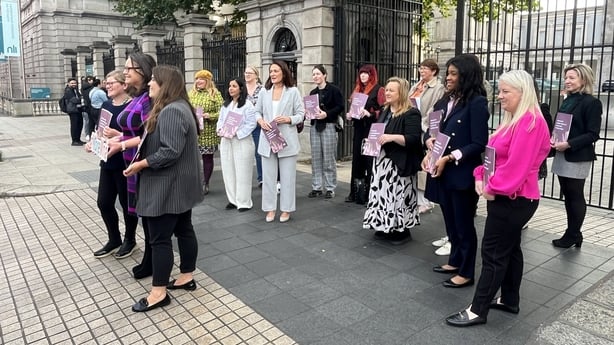The National Women's Council (NWC) has joined with other groups in calling for a 40% gender quota for local election candidates to be introduced as a key measure to address gender inequality.
For general elections, political parties must field 40% female candidates or they will lose 50% of their annual State funding.
However, there are no gender quotas required for local elections.
Only 26% of recently elected councillors are women.
Rachel Coyle, Head of Campaigns and Mobilisation at NWC, said the local election results told a stark story of gender inequality and should provide a wake-up call.
"Women's political representation needs to remain on the political agenda, now, when we can do something about it. Gender quotas are no longer just an option, they are a necessity.
"Local politics play a crucial role in preparing candidates for general elections. If women aren't on the ballot locally, they simply won't appear nationally."

The NWC has joined with other groups to form an alliance to campaign on the issue.
The alliance consists of Women for Election, 50/50 Group, 50/50NI, Independent Living Movement Ireland, National Traveller Women’s Forum, See Her Elected, AkiDwA and Women’s Collective Ireland - Limerick.
It also includes Dr Michelle Maher of See Her Elected, Dr Sandra McAvoy (UCC), Dr Claire McGing (IADT), Dr Pauline Cullen (Maynooth University), Shane Gough (Maynooth University) and Dr Fiona Buckley (UCC).
Dr Maher said the problem was particularly acute at local electoral level in rural Ireland.
"One of the most advantageous things you can be going into a local election is a sitting councillor and what we're seeing in much of rural Ireland time and time again is the incumbents getting elected and they are all men."
She said there were numerous examples of this across the country including Killaloe in County Clare and Borris-In-Ossory in County Laois where she said the same block of Fianna Fáil, Fine Gael and Independent male councillors were being elected repeatedly.
The new alliance is calling for:
- the implementation of statutory gender quotas of 40% for local elections
- commitment to the introduction of mechanisms to ensure the adequate representation of minority groups including Traveller women, women from migrant backgrounds, women with disabilities and women from the LGBTQIA+ community
- increased funding for political parties, councils, and NGOs, tied to outcomes, to support women's inclusion






